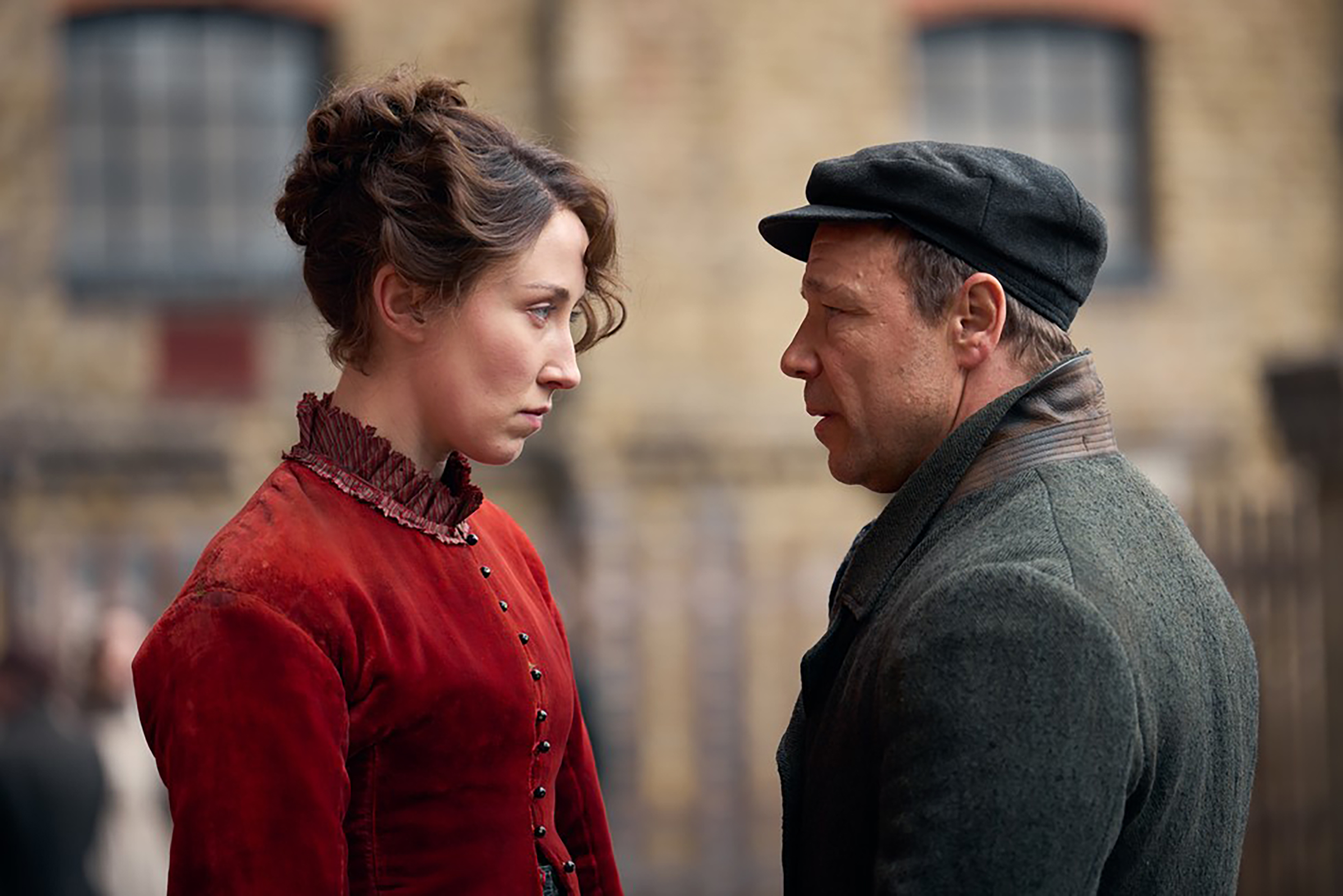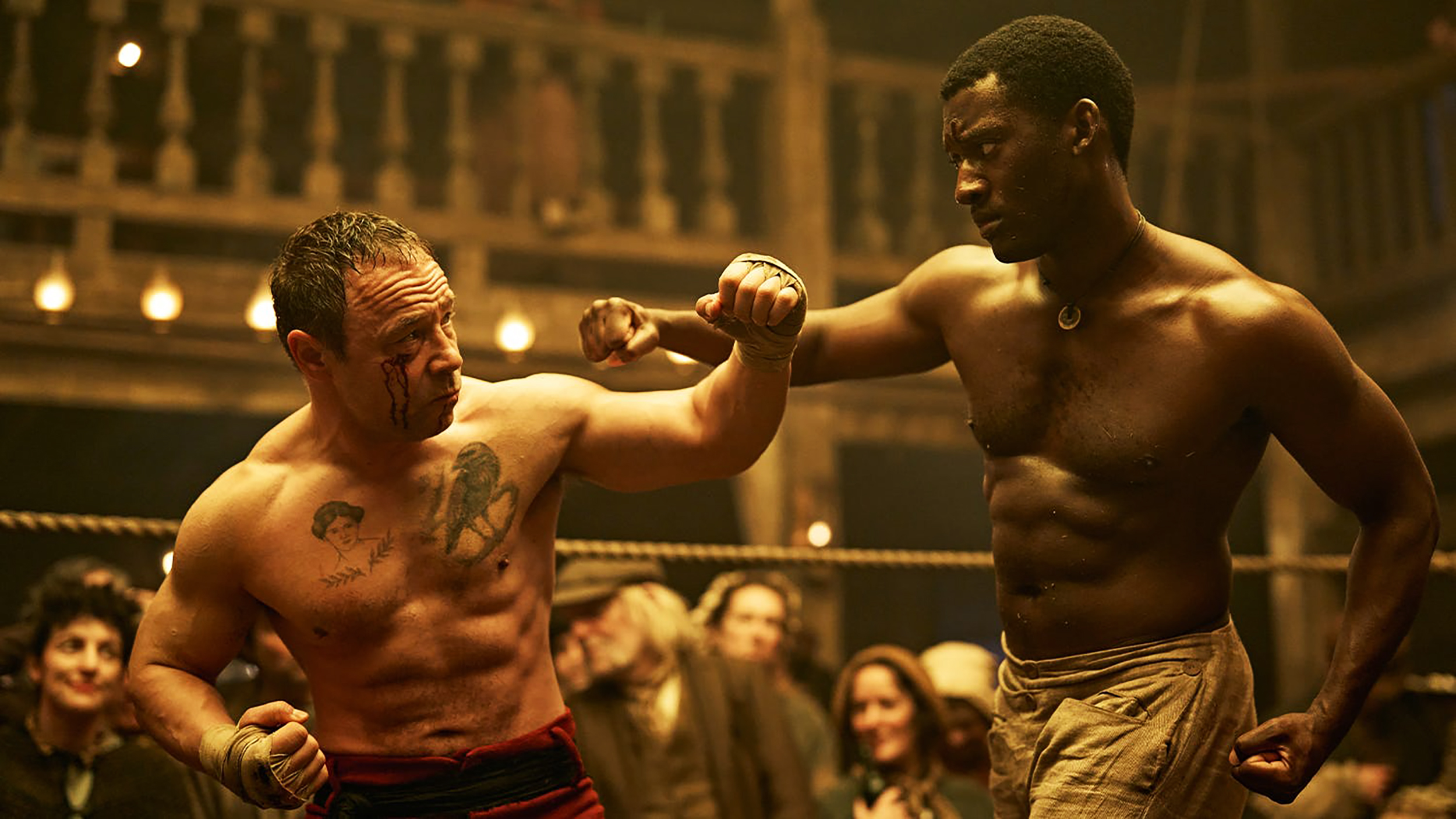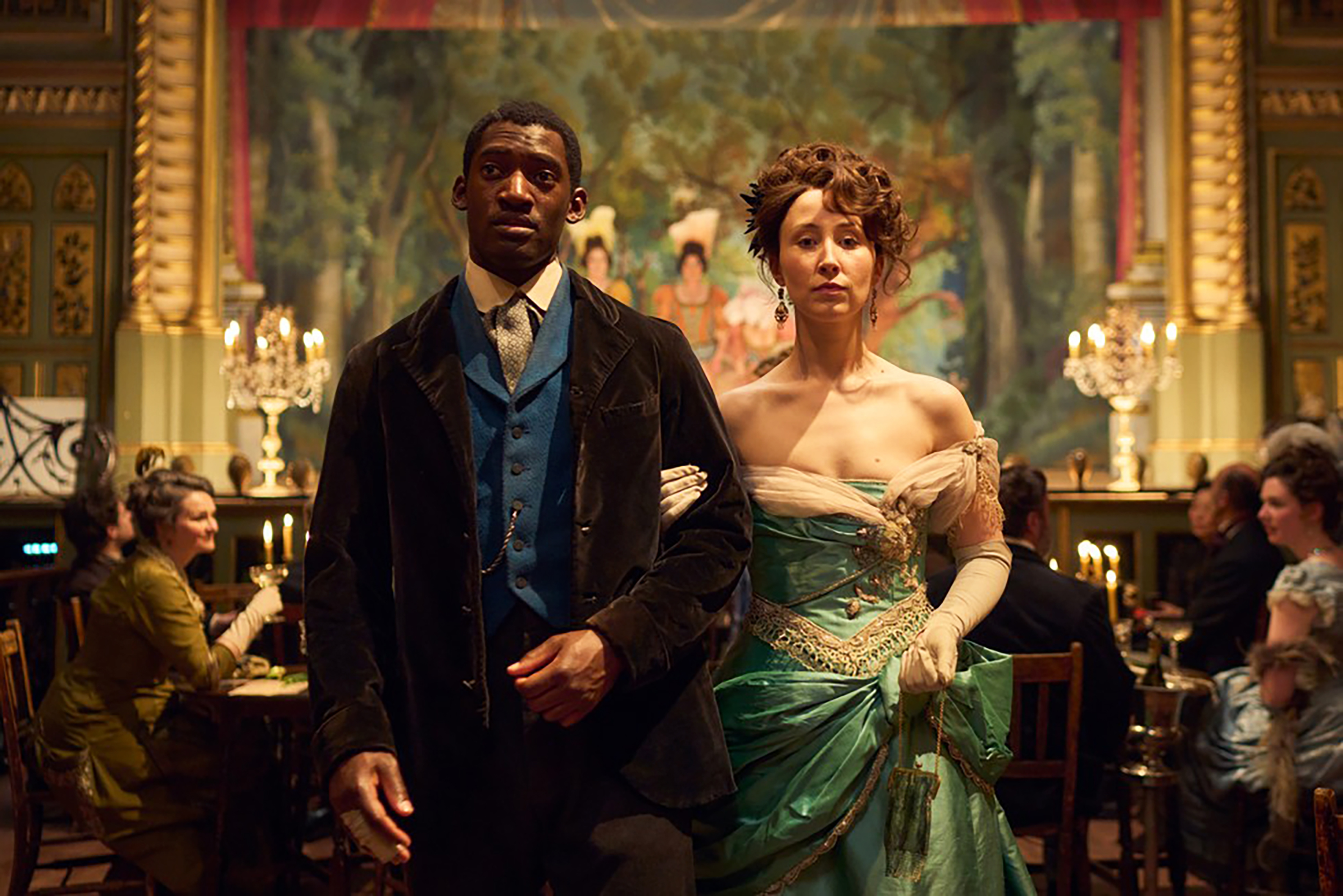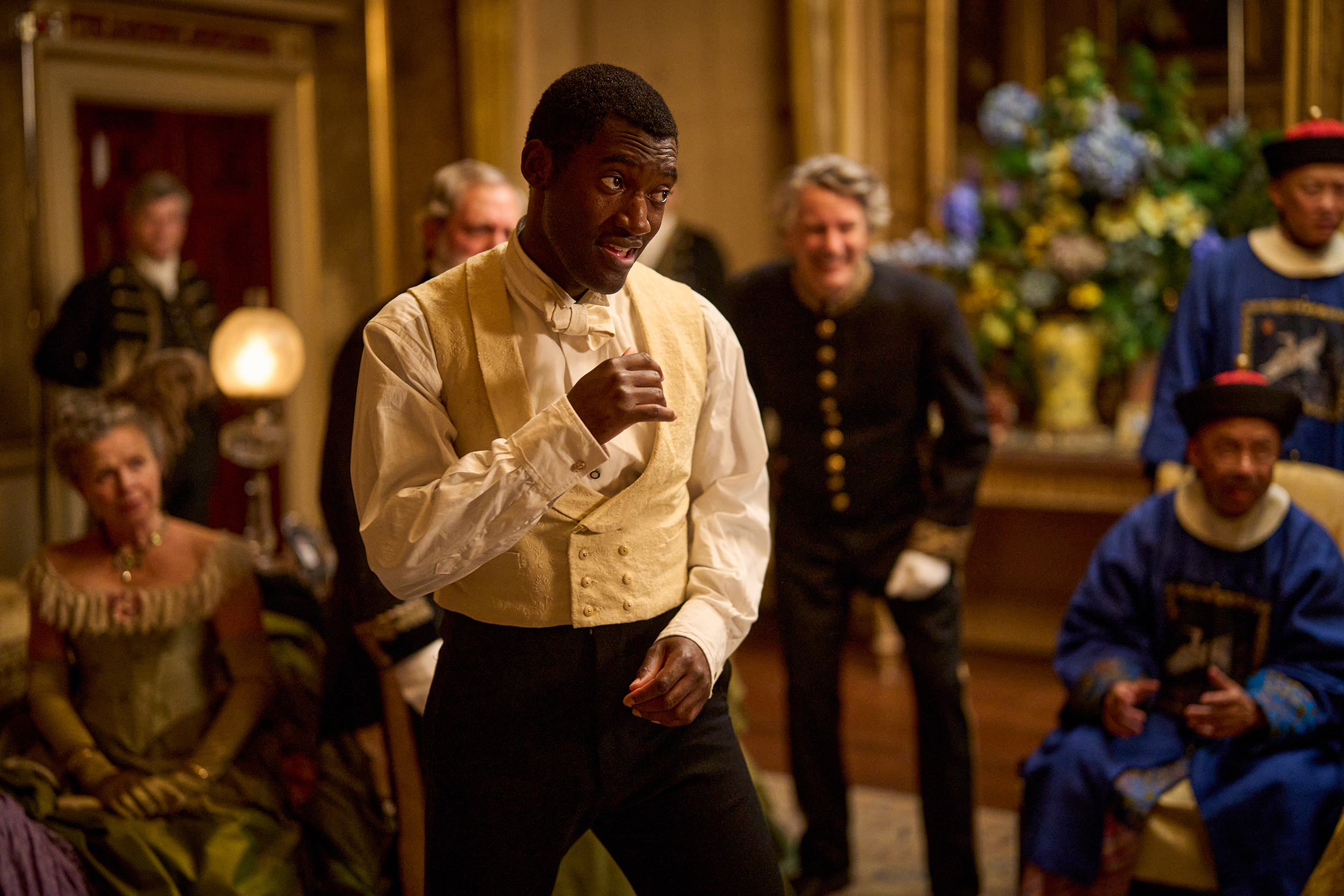'A Thousand Blows' Is a Victorian-Era Knockout
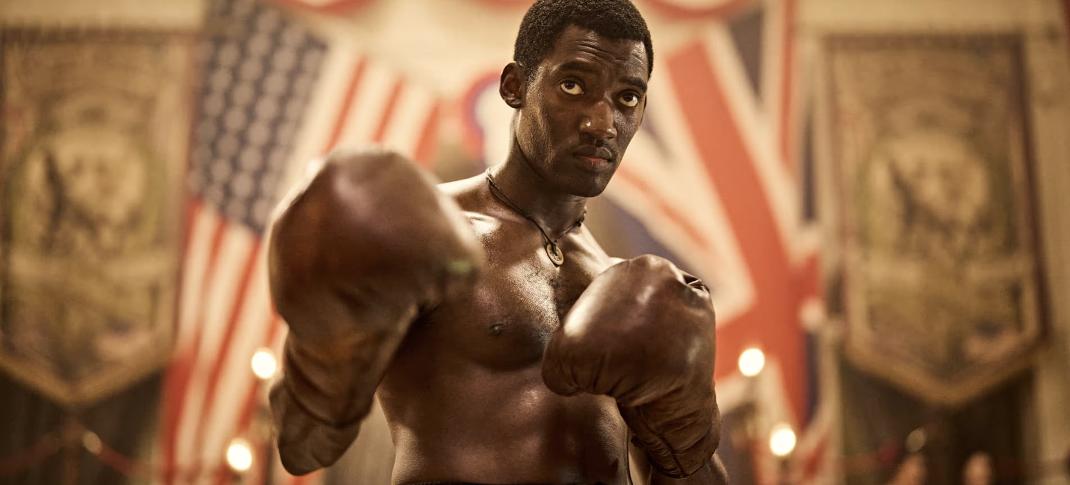
Malachi Kirby as Hezekiah Moscow in 'A Thousand Blows'
Hulu
From writer/creator Steven Knight (Peaky Blinders) comes Hulu’s A Thousand Blows, a stylish series about the rough and tumble streets of London’s East End in the 1880s. Mixing boxing, a gang of female thieves, and stories of immigration, the result is a remarkably entertaining six-episode first season. The theme music of the show’s fantastic score perfectly establishes the tone: a fast-paced, rollicking good time with a savage edge. Mocking voices mix with plucking strings and plinking pianos while guitars groan like elephants and squawk like crows.
(The official trailer is cut to modern music, so I was expecting something anachronistic from the soundtrack; Federico Jusid’s score works better.)
The contrast is stark between the clean, affluent West End of London and its poverty-stricken East End, where the story is set. Knight is brilliant at capturing gritty realness onscreen – you can practically feel the mud under your boots and the dirt on your hands, and it always seems cold. London might just eat you alive, or so believes Mary Carr (Erin Doherty), con artist and self-proclaimed queen of the Forty Elephants, an all-female gang that in real life ran successfully from the 1870s to the 1950s.
Mary is ambitious, brazen, and confident, leading her ladies on pickpocketing and shoplifting jobs but dreaming of larger schemes: she crafts a daring plan to steal from the Queen of England.
Mary strikes up an unexpected friendship with Hezekiah (Malachi Kirby), who has just arrived from Jamaica with his best friend Alec (Francis Lovehall), and whom she at first takes for an easy mark. Finding prejudice and denied lodging because of the color of their skin, Hezekiah and Alec wind up nearly penniless in the East End and resort to bare-knuckle boxing to improve their fortunes.
There, Hezekiah runs afoul of Sugar Goodson (Stephen Graham), who runs the pub where the Saturday night fights occur. He’s dangerous and hot-headed, with a death grip on the reigns of his empire and his reputation as the best fighter. Sugar’s brother Treacle (James Nelson-Joyce) wants to get him into gloved fighting in the new clubs on the West End, but Sugar is something of a dinosaur and refuses modernization.
Mary’s connections as an impersonator in high society affords Hezekiah the opportunity to box in the prestigious West End private club. With Alec’s coaching, Hezekiah is nearly unbeatable, rising in popularity and notoriety. A dreamer like Mary, Hezekiah has ambitions to fight the world champion boxer, an American – but not before he helps her with her heist.
There is quite a bit of plot packed in here, but the characters are what really bring things to life and make the story matter. One of the best is Mr. Lao (Jason Tobin), proprietor of the Green Dolphin Inn where Hezekiah finally finds a room, who is genuine and kind with a mysterious past.
There’s a great scene where Hezekiah astounds Lao by speaking Mandarin, revealing shared Chinese origins: Hezekiah’s grandmother was Hakka Chinese. This forges a connection between the two that blossoms into true friendship.
The show is aiming for a wide audience: The fights – especially the bare-knuckle ones – aren’t too graphic (but neither are they toothless). The sounds of blows landing are low in the mix, and the blood is darker to minimize its visual impact. Even when Sugar takes a page from Mike Tyson and bites an opponent’s face, we are shielded from the worst of it. The fight choreography is intricate, engaging, and will hold your attention even if you could care less about boxing.
Clashes of class abound between East End boxing – bare-knuckled, dirty, dark, filled with riff-raff spectators and lots of blood – and the respectable gentleman’s sport of pugilism in West End clubs, which are well-lit affairs held in museum-like buildings, using gloves and proper attire, where the young men aren’t beaten to pulps and lords and ladies attend the matches. Hezekiah wins his fights by using his opponents’ assumptions against them; they expect he is “all aggression, no skill.”
Racial tensions and struggle are key to this show. Early in the story Hezekiah goes to the zoo for a job he’s been promised, only to discover the horrifying truth: He himself is the intended attraction. Later, when Hezekiah has made a name for himself, he verbally challenges a racist old white man who defends the British response to the Morant Bay Rebellion – a deadly clash where his father was killed in front of him by British soldiers.
The actors turn in singular performances, each disappearing into their roles seamlessly. As Mary, Doherty commands all attention like the screen was made for her. Mary is unparalleled, strong, and self-assured; when a cowed male associate compares her to a man, she declares she is “beyond men.”
Delivering a flawless Jamaican accent, Kirby brings a mix of hope, heart, and inexhaustive strength to Hezekiah, whose tragic past both drives and haunts him. Sugar rounds out the trio, whose obsession with beating Hezekiah “fair and square” in a rematch becomes his undoing. Graham’s portrayal gives depth to what could have been a flat characterization, infusing hidden complexity into Sugar.
One bizarre moment that doesn’t seem to match the rest of the show is the unintentionally hilarious moment a character gets run over by a horse-drawn carriage. It’s shot in such a way that you cannot help laughing. But this is a minor quibble in an overall magnificent series that is absolutely worth your time.
All six episodes of A Thousand Blows are available to stream beginning Friday, February 21, 2025, on Hulu in the U.S. (or on Disney+ under the Hulu tile) and on Disney+ internationally. Season 2 has not been officially greenlit but is expected to follow in 2026.

